
"Folsom Prison Blues" is a song by American singer-songwriter Johnny Cash. Written in 1953, it was first recorded and released as a single in 1955, and later included on his debut studio album Johnny Cash with His Hot and Blue Guitar! (1957), as the album's eleventh track. Borrowing liberally from Gordon Jenkins' 1953 song, "Crescent City Blues", the song combines elements from two popular folk styles, the train song and the prison song, both of which Cash continued to use for the rest of his career. It was one of Cash's signature songs. Additionally, this recording was included on the compilation album All Aboard the Blue Train (1962). In June 2014, Rolling Stone ranked it No. 51 on its list of the 100 greatest country songs of all time.
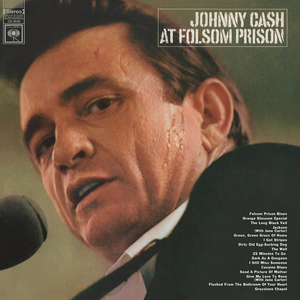
Johnny Cash at Folsom Prison is the first live album by American singer-songwriter Johnny Cash, released on Columbia Records on May 6, 1968. After his 1955 song "Folsom Prison Blues", Cash had been interested in recording a performance at a prison. His idea was put on hold until 1967, when personnel changes at Columbia Records put Bob Johnston in charge of producing Cash's material. Cash had recently controlled his drug abuse problems, and was looking to turn his career around after several years of limited commercial success. Backed by June Carter, Carl Perkins, and the Tennessee Three, Cash performed two shows at Folsom State Prison in California on January 13, 1968. The initial release of the album consists of fifteen songs from the first show and two from the second.
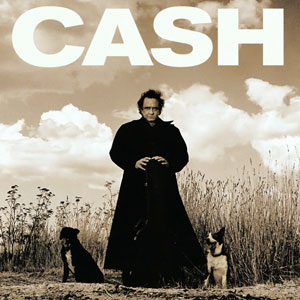
American Recordings is the 81st album by American country singer Johnny Cash. It was released on April 26, 1994 by American Recordings, after it had changed its name from Def American.

"All I Really Want to Do" is a song written by Bob Dylan and featured on his Tom Wilson-produced 1964 album, Another Side of Bob Dylan. It is arguably one of the most popular songs that Dylan wrote in the period immediately after he abandoned topical songwriting. Within a year of its release on Another Side of Bob Dylan, it had also become one of Dylan's most familiar songs to pop and rock audiences, due to hit cover versions by Cher and the Byrds.
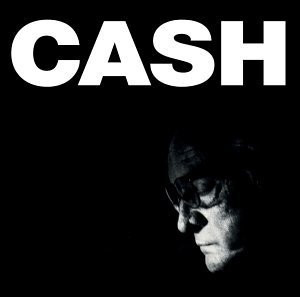
American IV: The Man Comes Around is the sixty-seventh and final non-posthumous studio album by Johnny Cash. It was released on November 5, 2002, by American Recordings and Universal Records. It is the fourth in Cash's "American" series of albums, and the last album released during his lifetime, and is considered some of his finest work towards the end of his life. The album was also included in the book 1001 Albums You Must Hear Before You Die.
"Dark as a Dungeon" is a song written by singer-songwriter Merle Travis. It is a lament about the danger and drudgery of being a coal miner in a shaft mine. It has become a rallying song among miners seeking improved working conditions.

Hello, I'm Johnny Cash is the 33rd album by American country singer Johnny Cash, released on Columbia Records in 1970. "If I Were a Carpenter", a famous duet with Cash's wife, June Carter Cash, earned the couple a Grammy Award for Best Country Performance by a Duo or Group with Vocal in 1971 ; the song also reached #2 on the Country charts. This album also includes "To Beat the Devil", the first Kris Kristofferson song covered by Cash; the two would later collaborate numerous times, most famously on "Sunday Mornin' Comin' Down". "See Ruby Fall" and "Blistered" were also released as singles, and the album itself reached #1 on the country charts and No. 6 on the pop charts. It was certified Gold on January 29, 1970 the RIAA. The album has been released on CD and it has been made available on official download sites. This album is not to be confused with a 1977 Columbia Special Products compilation LP with the same name.

Man in Black is the 38th overall album by country singer Johnny Cash, released on Columbia Records in 1971. Many of the songs on the album contain political references, either broad or specific, while the title song refers both to Cash's tendency to wear black at live shows and to the tumultuous times in which the song was created, implying the Vietnam War. The album's name also eventually became Cash's informal nickname, given to him by the public. Two tracks — "Man in Black" and "Singin' in Vietnam Talkin' Blues" — were released as singles, the former peaking at No. 3 on the Country chart. The first track features Billy Graham.

The Mystery of Life is the 77th album by country singer Johnny Cash, released in 1991, and his last for Mercury Records. The songs featured are culled from both recent sessions and from leftovers from Cash's first Mercury session in 1986 for the album Johnny Cash is Coming to Town.

Rainbow is the 70th album by American country singer Johnny Cash, his last for Columbia Records, released in 1985. "I'm Leaving Now", which was re-recorded 15 years later for Cash's American III: Solitary Man, was released as a single rather unsuccessfully, but the album's signature song is a cover of Kris Kristofferson's "Here Comes That Rainbow Again", which also appeared on Cash's 1995 collaboration with Kristofferson, Willie Nelson and Waylon Jennings - known as The Highwaymen - entitled The Road Goes on Forever, though it was sung solo by Kristofferson on the latter. Also included is a cover of Creedence Clearwater Revival's "Have You Ever Seen the Rain?," from Pendulum. The album also includes the song "Love Me Like You Used To," which was later recorded by fellow country singer Tanya Tucker, and became a country hit for her. Following the release of this album and a duet album with Jennings in 1986, Cash moved to Mercury Records as a result of Columbia's fading interest in his music, though he later returned to Columbia for the second Highwaymen album.
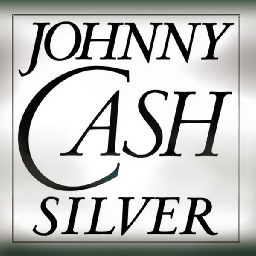
Silver is the 25th anniversary studio album by American country singer Johnny Cash, released on Columbia Records in 1979. It peaked at #28 on the Billboard albums chart. "(Ghost) Riders in the Sky" peaked at #2 on the singles chart; the two other singles, "Bull Rider" and "I'll Say It's True", had reached #66 and #42, respectively. Recordings of "Cocaine Blues" had previously appeared on At Folsom Prison and Now, There Was a Song!, under the title "Transfusion Blues" on the latter. The album was produced by Brian Ahern, who controversially introduced digital elements into the songs to the disapproval of some listeners. This is the last album that featured bassist Marshall Grant, longtime Cash collaborator in Tennessee Two. He departed from Cash's band the following year.
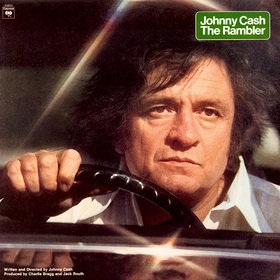
The Rambler is an album by American country singer Johnny Cash, released in 1977 on Columbia Records. A concept album about travelling, its songs, in between, include dialogue between Cash and hitchhikers picked up or other people he meets during the album's cross-country trip. It is the last, and one of the few Johnny Cash albums to only feature songs written by Cash himself. It is also his last non-religious concept album, and was included on the Bear Family box set Come Along and Ride This Train. The Rambler reached #31 on the country album charts; the two singles, "Lady" and "After the Ball", had minor chart success.
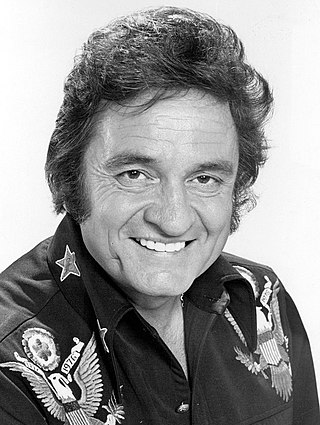
John R. Cash was an American singer-songwriter. Most of Cash's music contains themes of sorrow, moral tribulation, and redemption, especially songs from the later stages of his career. He was known for his deep, calm, bass-baritone voice, the distinctive sound of his backing band, The Tennessee Three, that was characterized by its train-like chugging guitar rhythms, a rebelliousness coupled with an increasingly somber and humble demeanor, and his free prison concerts. Cash wore a trademark all-black stage wardrobe, which earned him the nickname as the "Man in Black".

"The Ballad of Boot Hill" is a 1959 song written by Carl Perkins which was recorded by Johnny Cash on Columbia Records.

The albums discography of American singer Johnny Cash spans his lengthy career, from 1954 to 2003. It includes the release of 97 albums, most of them for Columbia Records. Over the years, Cash also collaborated with many of the industry's most notable artists.
"Mister Garfield" is a traditional song sometimes credited to Ramblin' Jack Elliott.
"Georgia on a Fast Train" is a song by Billy Joe Shaver from his debut 1973 album Old Five and Dimers Like Me.
"We Must Believe in Magic" is a song written by Allen Reynolds and Bob McDill and originally released by Crystal Gayle on her fourth studio album We Must Believe in Magic (1977).
"Without Love" is a song by Nick Lowe from his 1979 studio album Labour of Lust.
"That Old Wheel" is a song written by Jennifer Pierce and recorded by Johnny Cash together with Hank Williams Jr. for Cash's Jack Clement–produced 1988 album Water from the Wells of Home.














